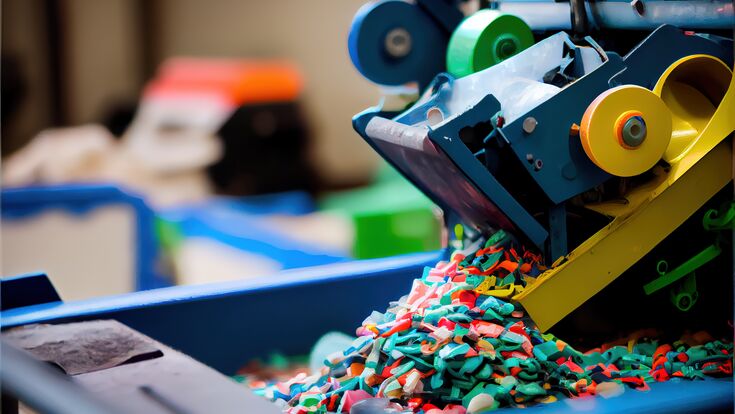PPWR : EU industry threatened by growing imports of recycled plastics, study confirms

The EU's Packaging and Packaging Waste Regulation (PPWR) - after long discussions - is ready for adoption. One point that has been discussed at length is the use of recyclate that originates from outside the EU. Plastic Recyclers Europe (PRE) an organization representing European plastics recyclers, fought hard to introduce safeguards for the European plastics industry and level the playing field. "The legislators are sending a misleading message - that investments in the European plastics recycling value chain are not worth making. Recyclers are the first to suffer the consequences, but converters and raw material producers are next in line", the association wrote in a statement pointing at a recent study that confirmed the industry's worries.
"In 2023, the market already responded to this destabilisation by increasing exports of EU plastic waste by 18%. These paradoxical circumstances result in more EU waste being landfilled and incinerated, leading to severe pollution of ecosystems and jeopardising the environmental objectives of the European Green Deal," said PRE.
A 2023 study warns of the consequences of reducing or stopping future investment in Europe's recycling systems, using the case of PET and polyester. If investment in the EU were to fall or cease, the result would be a more than doubling of Europe's greenhouse gas emissions by 2040, as more waste would be incinerated rather than recycled. The study also shows that the PET recycling rate would fall to between 32% and 38% by 2040, compared to the estimated 67% in the circular scenario. Read the full study here.
The legislators seemed to have listened to the industry's worries. In the end, the parties have agreed that the recycled material used in plastic packaging could come from the EU or be recycled beyond the EU if it meets the European quality and sustainability requirements for recycled material. In addition, the plastic waste used may be collected in the EU or third countries. As long as the environmental standards for collection and recycling in third countries are equivalent to those in the EU.

